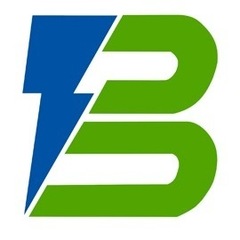Purchasing the right diesel generator involves careful consideration of several factors to ensure it meets your power needs effectively. One critical aspect is determining the frequency, measured in hertz (Hz), of the diesel generator. But how do you determine how many hertz your diesel generators should be? Let’s explore the key questions and steps to guide you through this decision.
What is the Importance of Hertz in Diesel Generators?
The frequency (hertz) of a diesel generator indicates how many cycles per second the alternating current (AC) waveform completes. Common frequencies for generators are 50 Hz and 60 Hz, depending on the region and application. But why is this important?
- Compatibility: Is your equipment designed to operate at a specific frequency? Using a generator with the wrong frequency can damage sensitive equipment or cause it to malfunction.
- Efficiency: Will your generator run efficiently at the chosen frequency? Generators are designed to operate optimally at their specified frequency, affecting fuel consumption and performance.
How Do You Identify the Required Frequency for Your Region?
The first step in determining the appropriate hertz for your diesel generator is to understand the standard frequency for your region. But how do you find this information?
- Regional Standards: Are you in a region that uses 50 Hz or 60 Hz? Most countries have a standard frequency: for example, 50 Hz is common in Europe, Asia, and Africa, while 60 Hz is typical in the Americas.
- Local Regulations: Do local regulations specify a required frequency? Check with local authorities or utility companies to ensure compliance with regional standards.
What Equipment and Appliances Will You Be Powering?
Understanding the frequency requirements of your equipment and appliances is crucial. How do you determine this?
- Manufacturer Specifications: What frequency is specified by the manufacturers of your equipment? Consult the equipment manuals or labels for frequency requirements.
- Mixed Frequencies: Do you have equipment that operates at different frequencies? If you have a mix of 50 Hz and 60 Hz equipment, you may need to consider multiple generators or converters.
How Do You Calculate the Total Power Demand?
To determine the number of generators you need, you must calculate your total power demand. But how do you accurately assess this?
- Power Rating: What is the total wattage of all equipment to be powered? Add up the wattage of all devices to determine the total power requirement.
- Peak Load: What is your peak power demand? Consider the highest power consumption periods to ensure your generator can handle the load.
- Generator Capacity: How much power can a single generator provide? Compare your total power requirement to the capacity of available generators to determine the number needed.
What Other Factors Should You Consider?
In addition to frequency and power demand, other factors can influence your decision. What should you keep in mind?
- Future Expansion: Are you planning to add more equipment in the future? Consider potential growth to avoid undersizing your generator capacity.
- Backup and Redundancy: Do you need backup generators for critical operations? Ensuring you have redundant generators can prevent downtime during maintenance or failures.
- Fuel Availability: Is fuel readily available for your generators? Ensure a reliable fuel supply to avoid interruptions.
Conclusion
Determining the appropriate frequency and number of hertz diesel generators requires a comprehensive assessment of your power needs, equipment specifications, and regional standards. By understanding the importance of frequency, identifying regional requirements, assessing your equipment, and calculating total power demand, you can make an informed decision. Considering additional factors like future expansion and fuel availability will further ensure you choose the right diesel generators to meet your needs efficiently and reliably.




